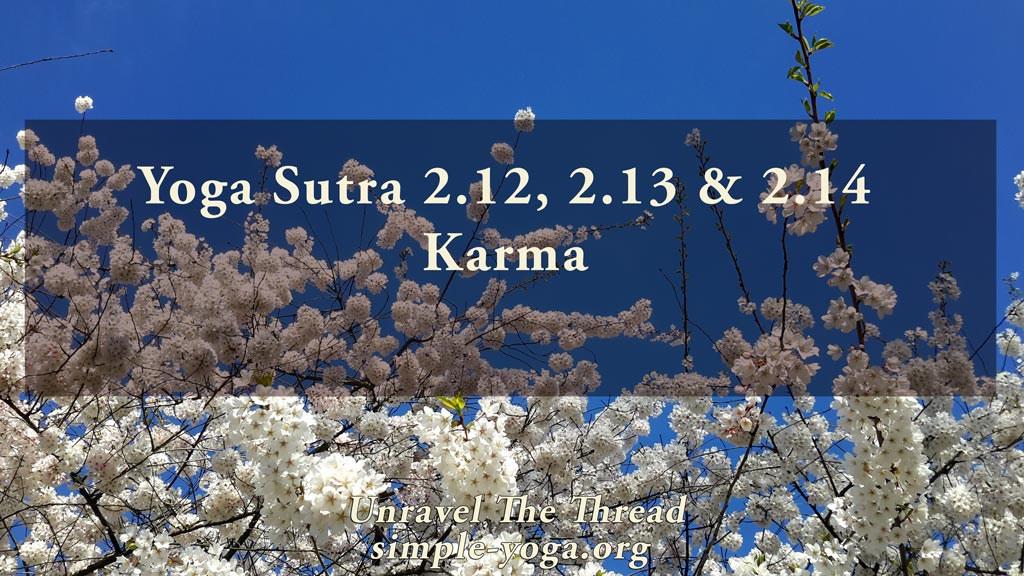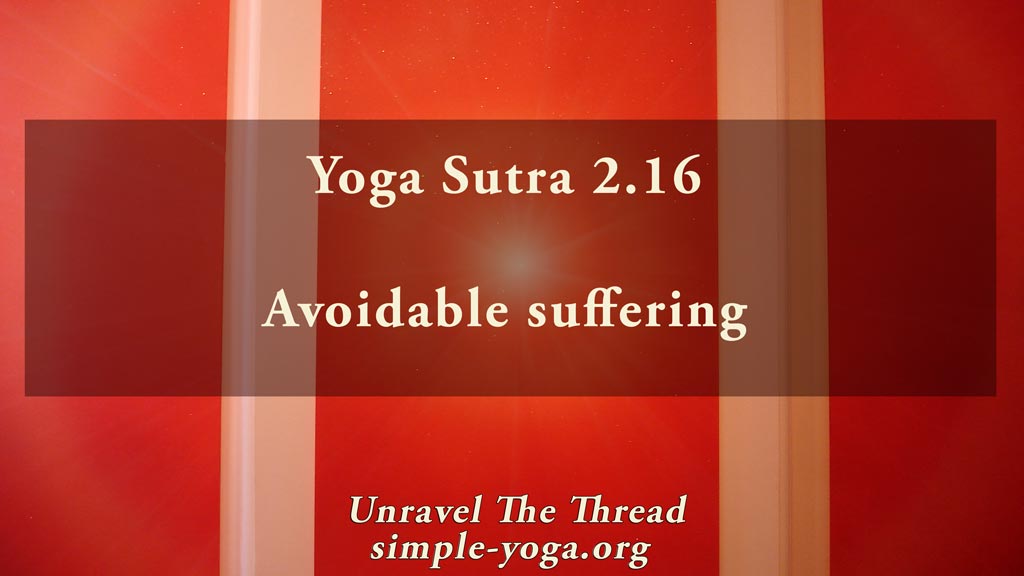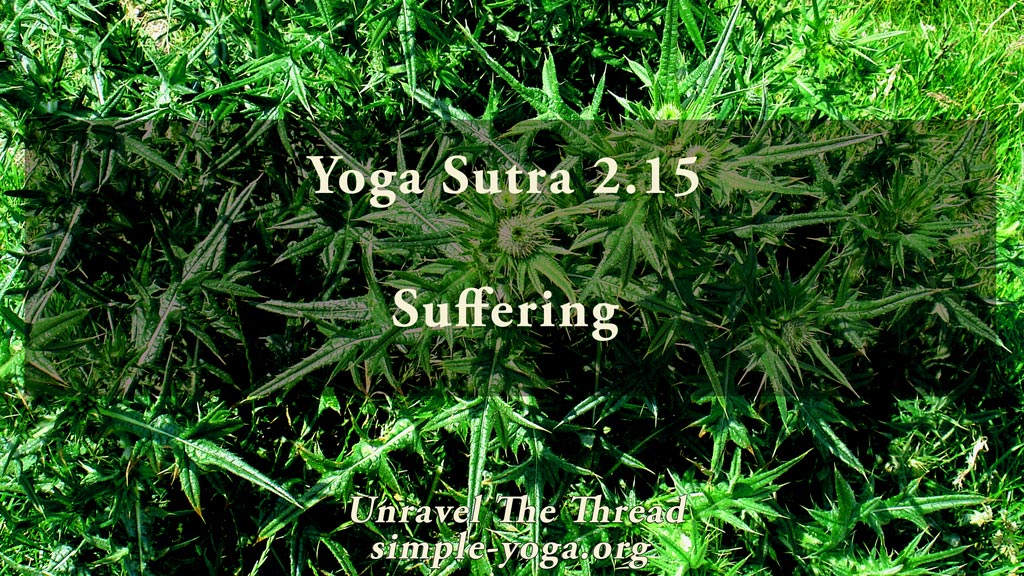
2.12 2.13 & 2.14 Karma
May 24, 2020
2.16 Avoiding suffering
June 8, 2020
2.12 2.13 & 2.14 Karma
May 24, 2020
2.16 Avoiding suffering
June 8, 20202.15 Suffering

2.15 The discerning person knows that all internal activities and experiences resulting from the mutability of nature (gunas) will eventually cause pain and suffering.
Most scholars associate Patañjali’s Yoga Sutra with the ancient Samkhya philosophy. In the Samkhya system the concept of guna –attribute or feature— describes three fundamental tendencies in nature. The three gunas are: inertia – tamas, energy – rajas and harmony – sattva. When these three qualities are in balance, they exist as pure potential. Everything in nature is, at a very subtle level, the manifestation of a combination of these three tendencies. Life is an ongoing process of change resulting from the endless play between these attributes. However, each moment is unique, irreplaceable and unrepeatable. Knowing this is a powerful reminder that all experiences and sensations are temporary. Strong desire for some experience or object will generate lots of emotions and expectations. The underlying assumption is that fulfilling that desire will solve your problems by making you better, more complete and whole. But the joy of obtaining what you desire can soon turn into a new reason for anxiety, insecurity and fear, because you may switch from trying to get what you want, to trying to prevent losing what you have gained. Becoming attached to any experience by trying to grasp it or to reject it, is bound to generate suffering. Does it ever happen to you that you keep longing for something wonderful that happened before, but that is now long gone? Does that ever bring a feeling of sadness and a desire to go back in time? Is that an example of something that was once pleasurable but has become a source of suffering? In present times, marketing and advertising seem to be almost exclusively focused on creating the illusion of fulfillment and satisfaction from objects and experiences that can be bought or sold. This is a powerful force that many of us are exposed to on a regular basis and it leaves many impressions in our minds and hearts. However, the wise person know that anything that can be gained will eventually be lost and that anything that can be bought or sold is unlikely to provide lasting joy and happiness.
Examine your own words and thoughts and notice any underlying assumptions based on the notion that once you gain something you will become a better version of you, or that your life will be somehow more fulfilling or meaningful. Is that really possible? Inquire into your desires. What do you think you will gain by what you desire? Sometimes we may want something and keep working towards it. However, it may take a long time to reach that goal, and by the time we achieve our objective, we may have forgotten what we wanted or may have changed our mind and become distracted by a new desire. Has this ever happened to you? From this perspective, examine your relationship to what is part of your life now. Is there anything that you thought you wanted (like a job, title, relationship or object) that is no longer what you want? You may also want to explore the extent to which you might be afraid of losing what you own. One more useful path of exploration is to contemplate this question: What would it take for you to love your life exactly as it is right now? When you decide to love your life as it is, what objections arise? What do they reveal about you?
As usual, one more way of exploring the meaning of this sutra is by chanting it.
You can choose to chant it in its traditional form with some of the words coming together:
2.15 pariṇāma tāpa saṃskāra duḥkhaiḥ guṇavṛttivirodhācca duḥkhameva sarvaṃ vivekinaḥ
परिणाम ताप संस्कार दुःखैः गुणवृत्तिविरोधाच्च दुःखमेव सर्वं विवेकिनः ॥१५॥
Another option is to chant each word in the sutra individually:
- pariṇāma
- tāpa
- saṃskāra
- duḥkhaiḥ
- guṇa
- vṛtti
- virodhāt
- ca
- duḥkham
- eva
- sarvaṃ
- vivekinaḥ
If you prefer, you may listen to the podcast:
Unravel the thread is now available as a book!
If you find Simple-Yoga.org and Unravel the thread useful, consider supporting my labor with a donation, you may also donate using PayPal or Venmo. Thank you!
